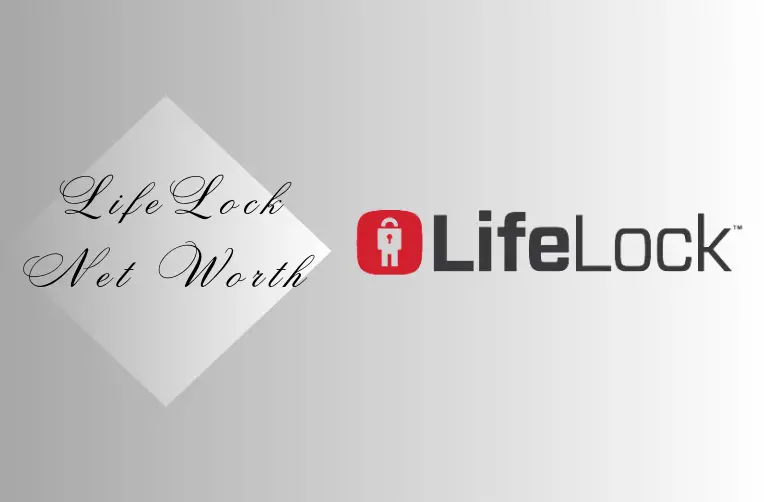LifeLock is an American identity theft software developed by Gen Digital Inc. based in Tempe, Arizona. It provides a robust system that monitors for identity theft, personal information usage, and credit score changes.
In 2017, LifeLock was acquired by Symantec for $2.3 billion, leading to a subsequent rebranding as NortonLifeLock in November 2019. Following Symantec’s enterprise division sale to Broadcom, Gen Digital Inc. took over ownership in 2022.
The company now offers Norton 360 subscription service with integrated LifeLock features to enhance its identity protection offerings.
| Brand Name | LifeLock |
| Founder | Todd Davis and Robert J. Maynard |
| Origin | American |
| Established In | 2005 |
| Products | Identity Theft Protection Service |
| Headquarters | Tempe, Arizona |
| Operational Areas | America |
| LifeLock Net Worth | $53 million (Last Updated July 2023) |
LifeLock Net Worth
LifeLock’s net worth was reported to be approximately $53 million.
LifeLock Founder
LifeLock was founded in 2005 by Robert J. Maynard and Todd Davis. Todd Davis, in particular, gained significant attention as the face of the company’s advertising campaigns, boldly displaying his real Social Security number to prove his trust in LifeLock’s protection.
Davis’ unique marketing approach and the company’s innovative identity theft protection services helped LifeLock gain prominence in the industry.
While the company’s founder played a pivotal role in its early success, LifeLock later went through ownership changes, including being acquired by Symantec in 2017, and is currently operated by Gen Digital Inc. since 2022.
Also Read: https://gamerstechie.com/todd-davis-net-worth/
LifeLock History
LifeLock was co-founded in 2005 by Robert J. Maynard and Todd Davis. Maynard, with previous experience in founding the Internet Service Provider Internet America, joined forces with Davis, who had a background in marketing and previously founded Marketing Champions.
However, Maynard resigned in 2007 amid scrutiny over identity theft claims. Davis gained attention by publicly posting his Social Security number as part of an ad campaign, highlighting the importance of identity protection.
Over the years, LifeLock made strategic moves, including agreements with credit bureaus like TransUnion and acquisitions like ID Analytics and Lemon Wallet.
Despite facing legal challenges and a settlement with the FTC, the company continued to evolve, appointing Hilary Schneider as the new CEO in 2016.
LifeLock Funding
LifeLock’s journey began with $2 million in seed funding and received an additional $5 million in Series a funding in 2006 from Bessemer Ventures.
Subsequent funding rounds included $6 million in Series B funding from Kleiner Perkins Caufield & Byers in April 2007, followed by $25 million in Series C funding led by Goldman Sachs Group in January 2008.
In August 2009, the company raised $40 million in a Series D funding round. In 2013, LifeLock secured a significant investment of $100 million from multiple investors, including Bessemer Ventures Partners, Goldman Sachs & Co., Kleiner Perkins Caufield & Byers, Symantec Corporation, and River Street Management.
The funds facilitated the acquisition of ID Analytics, enhancing the company’s identity theft risk prediction technology. LifeLock went public in 2012, trading under the symbol “LOCK” on the New York Stock Exchange.
After its acquisition by Symantec for $2.3 billion, the company voluntarily deregistered its common stock in 2017.
LifeLock Competitors
The competitors of LifeLock in the identity theft protection and cybersecurity industry include:
- IdentityForce
- Experian IdentityWorks
- Identity Guard
- PrivacyGuard
- IDShield
- McAfee Identity Theft Protection
- ID Watchdog
- IdentityIQ
- TrustedID
- IDnotify by Experian
LifeLock Controversies
In June 2007, Robert J. Maynard, Jr., a co-founder of LifeLock, resigned amidst arguments surrounding his past, which was revealed in a story published by Phoenix New Times. The story involved details about bankruptcy, an FTC investigation, and incidents of identity theft.
LifeLock faced legal issues related to deceptive advertising, and in March 2010, it was fined $12 million by the Federal Trade Commission (FTC) for misleading marketing claims, specifically claiming to offer a 100% guarantee against all forms of identity theft.
In 2015, the FTC found LifeLock in contempt of a 2010 agreement, stating that the company had failed to maintain a comprehensive information security program and had falsely advertised its ability to protect consumers’ sensitive data.
As a result, the FTC obtained a $100 million monetary penalty against LifeLock, with $68 million set aside for class-action refunds to its customers.
LifeLock Unknown Facts
- LifeLock’s Co-Founder Resigned: Robert J. Maynard, Jr., one of the co-founders, resigned in 2007 following a arguments surrounding his past.
- Bold Marketing Campaign: LifeLock gained attention with a unique marketing campaign where CEO Todd Davis publicly shared his Social Security number to prove the company’s confidence in its services.
- Legal Troubles: The company faced legal issues and was fined $12 million by the FTC in 2010 for deceptive advertising related to its 100% guarantee claim against all forms of identity theft.
- Contempt Charge: In 2015, LifeLock was found in contempt of a 2010 agreement with the FTC, leading to a $100 million monetary penalty, with $68 million set aside for customer refunds.
- Acquisition by Symantec: LifeLock was acquired by Symantec in 2017 for $2.3 billion.
- Rebranding as NortonLifeLock: After Symantec sold its enterprise division, the company was renamed NortonLifeLock in November 2019.
- Series of Funding Rounds: LifeLock went through multiple funding rounds, securing investments from companies like Goldman Sachs, Bessemer Ventures, and Kleiner Perkins Caufield & Byers.
- Acquisition of ID Analytics: In 2012, LifeLock acquired ID Analytics, a company specializing in identity theft risk prediction technology.
- Fine for Contempt: LifeLock’s FTC fine in 2015 was the largest penalty ever obtained for contempt in FTC history.
- Expansion of Services: Over the years, LifeLock expanded its services beyond identity theft protection to include offerings like Norton 360 subscription plans with integrated LifeLock features.
Frequently Asked Questions (FAQs)
What is LifeLock, and how does it work?
LifeLock is an identity theft protection service that helps monitor for potential threats to your personal information, credit score changes, and unauthorized use of your data. It offers proactive identity protection and helps safeguard your sensitive information.
Is LifeLock effective in preventing identity theft?
LifeLock can provide valuable protection against identity theft by alerting you to potential risks and suspicious activities. However, no service can guarantee complete prevention of identity theft, as it depends on various factors beyond the service’s control.
What happens if I become a victim of identity theft while using LifeLock?
If you become a victim of identity theft while using LifeLock, the company offers identity restoration assistance. Their team of experts will work with you to resolve any issues and help restore your identity to its pre-theft status.
Can I access my credit score and reports through LifeLock?
Yes, LifeLock offers credit monitoring as part of its services, allowing you to access your credit score and reports. It helps you stay informed about changes to your credit profile, which can indicate potential identity theft.
Is LifeLock suitable for everyone, or are there specific eligibility requirements?
LifeLock’s services are available to individuals who want to protect their personal information and mitigate the risks of identity theft. However, specific services and features may vary depending on the subscription plan you choose.


